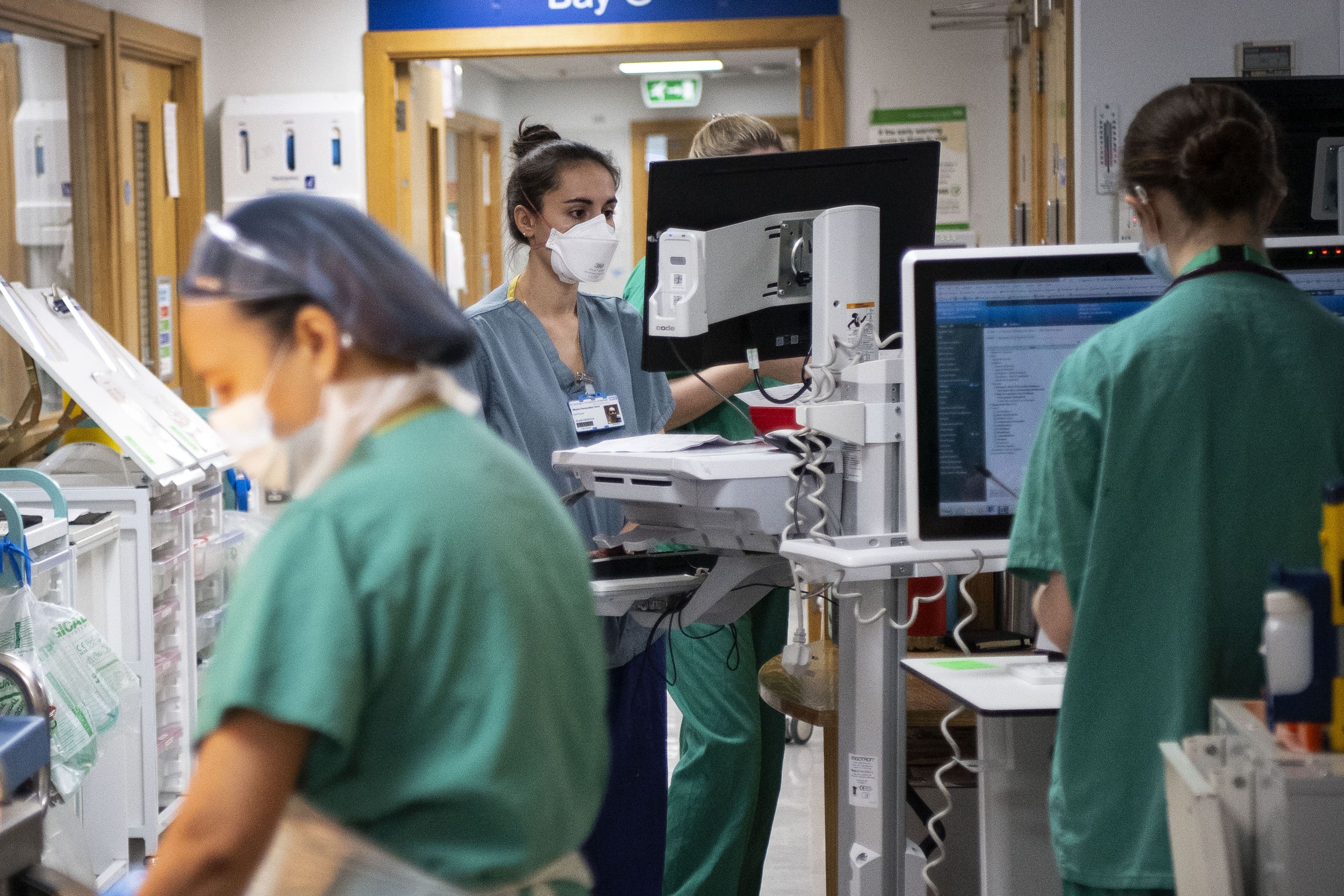One in three health workers suffering ‘burnout’ amid NHS staffing crisis
Half of mental health hubs for staff have been forced to close following funding cuts

Almost one in three NHS employees have had to take time off work suffering poor mental health in the past year, new research suggests.
The Unison union said its survey of 12,000 health workers shows the impact of a staffing crisis, with many suffering “burnout”.
Panic attacks, high blood pressure, chest pains and headaches are among the physical signs of stress reported by nurses, porters, 999 call handlers and other NHS staff who completed the survey.
The news comes as more than half of the mental health hubs launched for NHS workers after the pandemic have closed since last year, according to the British Psychological Society.
Unison said workforce pressures are taking a huge toll as staff tackle a waiting list backlog, with many struggling to look after their wellbeing.
Of those who were off with mental health problems, one in five said they did not tell their employer the real cause of their absence, mainly because they did not feel their manager or employer would be supportive.
The union said staff feel undervalued and frustrated, with many quitting for less stressful jobs that pay more.
Last month the NHS’ official staff survey revealed 42 per cent of staff reported feeling unwell as a result of work-related stress, and one third said they often or always feel burnt out.
Unison’s head of health, Helga Pile, speaking ahead of the union’s health conference in Brighton, said: “Many NHS staff are clearly at their limit. Burnout is a reality in every part of the health service, from hospital wards to ambulance stations.
“As more staff quit, the pressures increase for those still working in the NHS, and many are struggling to cope.
“No-one should suffer stress-related issues such as panic attacks and chest pains because of their job.
“Employers must do more to recognise the overwhelming pressures on all NHS staff, including healthcare assistants, cleaners and paramedics.
“The range of support available to workers experiencing mental health issues needs to be reviewed too.”
Following the pandemic 40 mental health and well being hubs were launched by the NHS. However national funding for these hubs came to an end in March last year meaning some areas have had to cut services.
According to the British Psychological Society, 18 hubs have closed since last March and a further eight are under threat of closure. The society has called for the government to provide urgent funding for the services.
Last week the government and the British Medical Association’s agreement over consultants’ pay was given the green light by members signalling an end to strike action from senior doctors. However, threats of further action from junior doctors remain.
Join our commenting forum
Join thought-provoking conversations, follow other Independent readers and see their replies
Comments
Bookmark popover
Removed from bookmarks